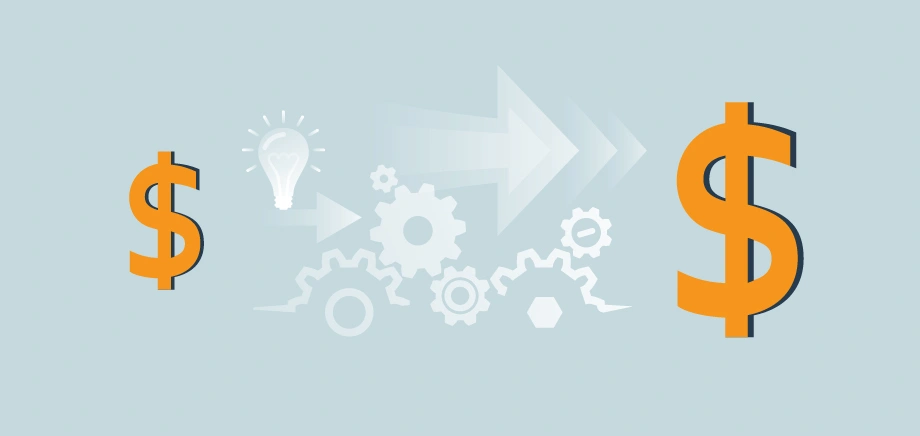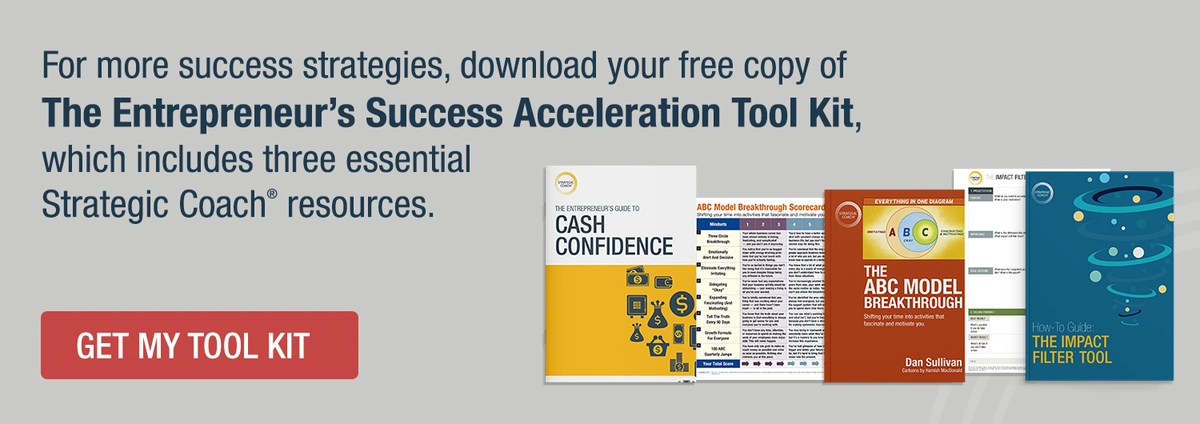How To Go From Cash Flow Anxiety To Autonomy
When you decided to be an entrepreneur, you took 100% responsibility for your own financial welfare, which can be incredibly freeing. But if your way of making money as an entrepreneur is unpredictable and anxiety-inducing, then it’s more like a life sentence.
The only way to do entrepreneurism well is to have total cash autonomy. When you do, you’ll free yourself from the shackles of unpredictability and anxiety and enjoy true entrepreneurial freedom.
In this blog post, I will share the 10 common cash flow traps that keep entrepreneurs stuck in a reactive, anxiety-driven mindset, and tips to avoid them and unlock the door to growth.
The 10 Common Cash Flow Traps
- Over-reliance on low-paying clients
- Poor invoicing practices
- Mismanaging inventory
- Chasing revenue instead of profit
- Inconsistent cash flow forecasting
- Rapid, uncontrolled growth
- Excessive debt
- Underpricing products or services
- Ignoring payment terms with vendors
- Lack of cash reserves
Tips for cash flow autonomy.
If you’re stuck in any of these cash flow traps, you’re probably hesitant to take bold steps (and rightfully so!). All of these traps cause unpredictability, which instantly diminishes your cash confidence.
Below are some simple ways to avoid these traps and increase your cash flow autonomy.
Tip #1: Set up systems & processes.
Cash flow autonomy isn’t about having an amount of money; it’s about having a way of making money. It’s a system you can adopt, and it means that you can focus on finding innovative solutions in the marketplace instead of just offering the same thing as everyone else and competing over price. So, understand where all your biggest and best cash flow comes from, and double down on your efforts to create systems and processes around it.
To put this into practice with the above traps, instead of over-relying on low-paying clients or falling victim to inconsistent cash flow forecasting, create predictable systems for generating consistent revenue. Systems and processes, among other things, plug cash leaks in your business resulting from poor invoicing or inventory management practices and allow you to build up your cash reserves.
Tip #2: Focus on value creation.
Most entrepreneurs don’t innovate at all. They take something someone else has created and try to outsell their competition. They usually attempt this by lowering their price, because that’s the only way they can think of to set themselves apart. Instead of falling into the trap of thinking about money in terms of unpredictable, competitive products, services, and pricing, take a different approach by continually creating and expanding cash flow through innovation and value creation.
Remember, in the entrepreneurial world, you can set up the conditions where you get rewarded for your uniqueness, and you can’t do that by comparing yourself to, and engaging in competition with, anyone else. It’s impossible to operate uniquely if you’re always comparing yourself to others and trying to compete with them. Simply focus on the way you uniquely create and provide value, and you’ll never have to worry about competition. You also won’t have to worry about underpricing, excessive debt, or uncontrolled growth because your value will be set apart and you’ll be innovating at a pace aligned with your building efforts.
Tip #3: Master KASH.
When creating unique value that others are willing to pay for (read: innovating), these four attributes will lead to total cash confidence: Knowledge, Attitudes, Skills, and Habits (KASH). All of these are interrelated: Your attitudes affect the knowledge you acquire, your skills are often based on your knowledge, your habits are repetitions of your skills, and so on.
When we fixate on cash instead of KASH, we’ll be stuck in a perpetual cycle of stress and anxiety as we constantly strive for more, more, more. Instead, think of money as a by-product of your value creation, and stop chasing revenue instead of profit. View the amount of money you make as a way to take stock of your achievements and how you can surpass them.
For me, KASH also allows me to be a greater value creator as I acquire each attribute, and it eliminates cash flow challenges before they become traps.
Tip #4: Think long-term.
No matter how much you know about creating value for your customers and clients, you can always learn more. Entrepreneurs get stuck when they see that something is working (for now) and simply stop striving to create more value in the future.
This will eventually dry up your pool of money-making possibilities.
Sidestep many of the common cash flow traps by continually integrating your value creation knowledge and improving your existing money-making systems.
The more you know what constitutes value for your customers as they go forward in their lives, the more value you can create for them in the future relative to their aspirations. Then you can collaborate with others to multiply the value you’re creating for those customers in the future.
The freedoms you get from total cash flow autonomy can be 10x more powerful in the future than they are right now. But remember, it’s not about making 10x the cash; it’s about making the value creation 10x as great. The money is just a by-product of that activity.
Think of the common cash flow traps that are keeping you stuck in anxiety, overwhelm, and hesitation. By setting up systems and processes, focusing on value creation, mastering KASH, and thinking long-term, you’ll find that these traps disappear and give way to a clear path to success.








